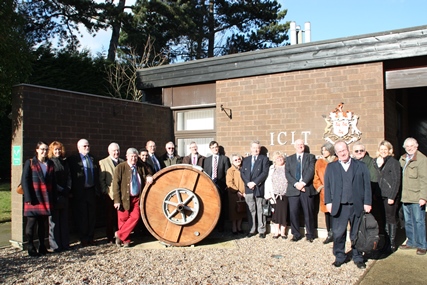IOM members visit the Institute for Creative Leather Technologies
IOM members visit the Institute for Creative Leather Technologies
Members of the IOM were given an opportunity to visit the ICTL (Institute for Creative Leather Technologies) at the University of Northampton to discover more about the leather-making industry.
The trip included a tour of the facilities, including the tannery and Leather Conservation Centre and concluded with a discussion on whether the carbon footprint of leather should start in the abattoir, or after that door closes.
Contributing to the debate, Ralph Early, professor of Food Industry at Harper Adams University, said: “The carbon footprint of leather exposes a number of issues that are central to the practicalities and utility of the carbon footprint as a decision making tool. Attempting to carbon footprint any product is pointless if the system and metrics used for calculation are not standardised and transferable.
“Criticisms of meat animal production which claim unsustainability in carbon footprint terms are often made in isolation from a holistic understanding of global food production systems.”
Richard Dilworth, group safety and training manager at ABP, added: “Whilst a lot of work on genetics has been carried out in the pig and dairy industries little work has been carried out on genomics in beef, which may help to improve the carbon footprint in the future.”
During the tour, Rachel Garwood, director of the ICTL, highlighted the importance to the leather industry of high quality hides free from fleas and with minimal butcher’s strain, which is often caused by mechanical skin strippers in the abattoir. She stressed that this could be improved through closer cooperation with the meat trade.
Chief executive of the IOM, Keith Fisher said: “The visit was extremely informative. The meat industry often thinks the process finishes as the abattoir door closes and doesn’t think about where the hides go afterwards. It has been an educative and enlightening experience for us all.”
Fisher’s comments were echoed by Rizvan Khalid of Euro Quality Lambs who added: “It was an interesting day and an opportunity to learn more about what happens to our by-products.”



